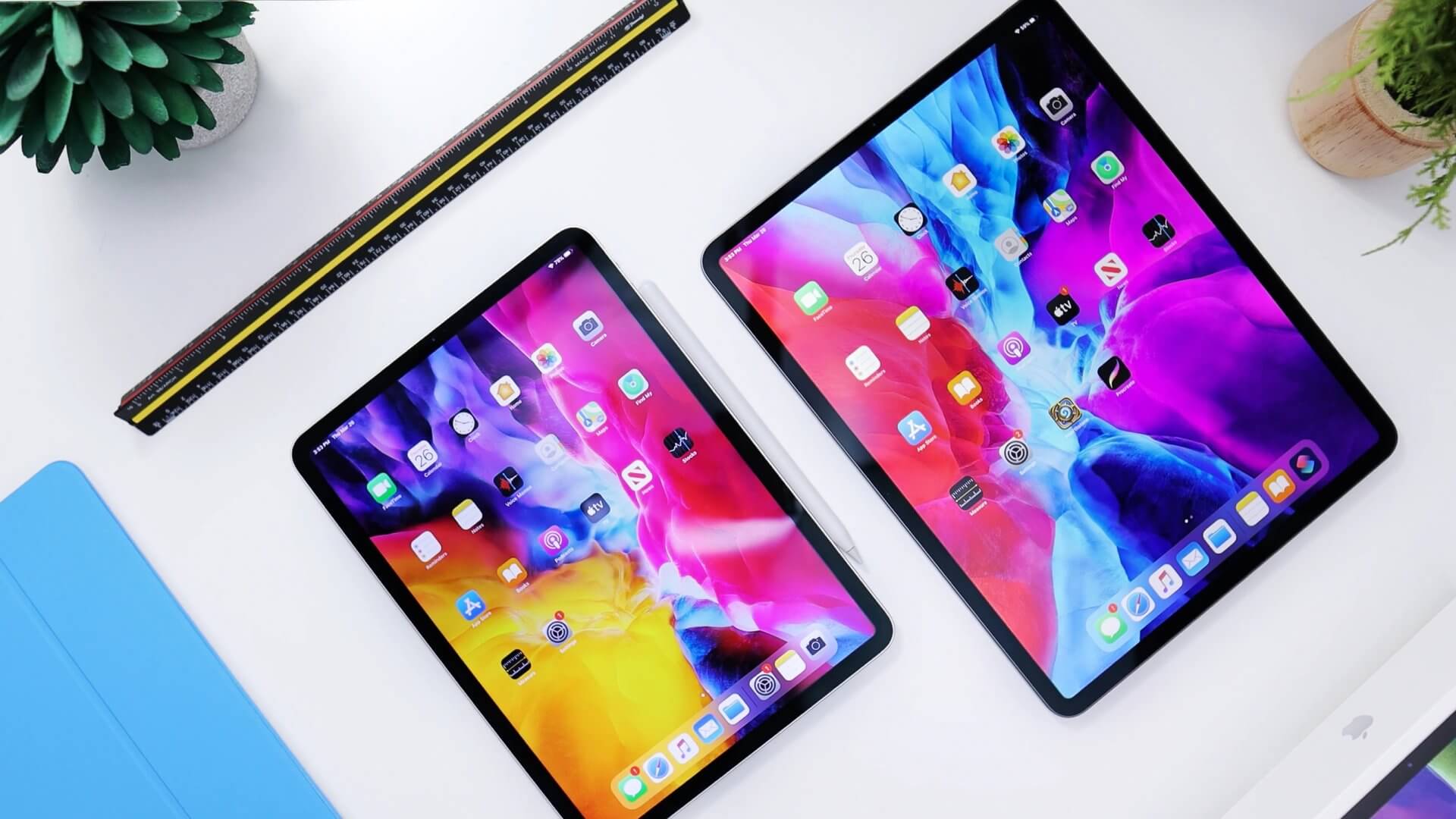
Technology Trends in 2024
The rapid evolution of technology has consistently reshaped the world, driving innovation and creating new opportunities. As we venture into 2024, several groundbreaking trends are set to redefine industries and enhance our daily lives. This comprehensive exploration delves into the most promising technological advancements of the year, including artificial intelligence, quantum computing, biotechnology, the metaverse, and more.
- Artificial Intelligence and Machine Learning

AI Integration in Everyday Life
Artificial Intelligence (AI) continues to be a transformative force across various sectors. In 2024, AI will become more integrated into everyday applications, making technology more intuitive and user-friendly. Voice assistants like Siri, Alexa, and Google Assistant are becoming more innovative, with improved natural language processing (NLP) capabilities allowing for more accurate and context-aware interactions. AI also enhances personal assistants and productivity tools, helping individuals manage their schedules, emails, and tasks more efficiently.
AI in Healthcare
The healthcare sector is experiencing significant advancements with the integration of AI. Machine learning algorithms are improving diagnostic accuracy by analyzing medical images, predicting disease outbreaks, and personalizing treatment plans. AI-driven predictive analytics help healthcare providers make informed decisions, improving patient outcomes. Moreover, AI streamlines administrative tasks, reduces the burden on healthcare professionals, and allows them to focus more on patient care.
AI Ethics and Governance
As AI becomes more prevalent, ethical considerations and governance frameworks are gaining importance. In 2024, there is a growing emphasis on ensuring that AI systems are transparent, fair, and accountable. Governments and organizations are working together to establish regulations that address issues like bias in AI algorithms, data privacy, and the ethical use of AI in decision-making processes. This effort aims to build trust in AI technologies and ensure responsible deployment.
- Quantum Computing

Quantum Supremacy and Practical Applications
Quantum computing is on the brink of revolutionizing industries by solving complex problems beyond classical computers’ capabilities. In 2024, significant strides are being made towards achieving quantum supremacy, where quantum computers outperform classical counterparts in specific tasks. This milestone is expected to have profound implications for cryptography, materials science, and drug discovery.
Advancements in Quantum Hardware and Software
Leading technology companies and research institutions invest heavily in developing quantum hardware and software. Innovations in qubit design, error correction techniques, and quantum algorithms are accelerating the progress of quantum computing. Companies like IBM, Google, and Microsoft are making their quantum computing platforms more accessible to researchers and developers, fostering a collaborative environment for quantum innovation.
Quantum Networking and Communication
Quantum communication, which leverages the principles of quantum mechanics to secure data transmission, is another exciting development area. Quantum key distribution (QKD) offers unparalleled security by detecting eavesdropping attempts, making it highly desirable for sensitive communications. In 2024, efforts are underway to establish quantum networks connecting quantum computers and sensors over long distances, paving the way for a quantum internet.
- Biotechnology and Genetic Engineering

CRISPR and Gene Editing
CRISPR technology, a powerful tool for gene editing, is revolutionizing biotechnology and medicine. In 2024, advancements in CRISPR are enabling more precise and efficient gene editing, with applications ranging from treating genetic disorders to improving agricultural productivity. Scientists are exploring innovative ways to use CRISPR for gene therapy, potentially curing diseases that were once considered untreatable.
Personalized Medicine
Personalized medicine, which tailors medical treatments to an individual’s genetic profile, is gaining traction. With the help of advanced genetic sequencing technologies, healthcare providers can identify genetic markers that influence a patient’s response to specific treatments. This approach allows for more effective targeted therapies, reducing adverse effects and improving patient outcomes. In 2024, personalized medicine is expected to become more widespread, transforming the healthcare landscape.
Synthetic Biology
Synthetic biology, which involves designing and constructing new biological parts and systems, is pushing the boundaries of biotechnology. In 2024, researchers are making significant progress in creating synthetic organisms with novel functionalities. These advancements have applications in various fields, including biofuel production, environmental remediation, and pharmaceuticals. Synthetic biology holds the potential to address global challenges by engineering organisms to perform specific tasks efficiently.
- The Metaverse

Virtual Reality and Augmented Reality
The metaverse concept, a collective virtual shared space, is becoming a reality with advancements in virtual reality (VR) and augmented reality (AR) technologies. In 2024, VR and AR offer immersive experiences that blur the lines between the physical and digital worlds. These technologies are adopted in entertainment, education, and training, providing users with interactive and engaging experiences.
Social Interaction and Collaboration
The metaverse is transforming the way people interact and collaborate. Virtual social platforms allow users to connect with friends, attend events, and work together in virtual environments. In 2024, businesses will leverage the metaverse for remote collaboration, enabling employees to work together seamlessly regardless of physical location. This shift fosters a new era of digital workspaces that promote creativity and productivity.
Economic Opportunities in the Metaverse
The metaverse is also creating new economic opportunities. Virtual real estate, digital assets, and virtual goods are becoming valuable commodities within the metaverse economy. In 2024, individuals and businesses will invest in virtual properties and create digital products that can be bought, sold, and traded. This emerging economy attracts entrepreneurs and developers, driving innovation and growth in the metaverse ecosystem.
- 5G and Beyond

Expanding 5G Networks
The rollout of 5G networks is accelerating in 2024, offering faster and more reliable connectivity. 5G technology provides low-latency, high-bandwidth connections essential for supporting the growing number of connected devices and data-intensive applications. The expansion of 5G networks is enabling advancements in areas such as autonomous vehicles, smart cities, and the Internet of Things (IoT).
Applications of 5G Technology
5G is unlocking new possibilities across various industries. 5G facilitates remote surgery and telemedicine in healthcare by providing real-time, high-quality video communication. In manufacturing, 5G-powered smart factories enhance production efficiency and enable predictive maintenance. Additionally, 5G is driving innovation in entertainment, with ultra-high-definition streaming, augmented reality experiences, and cloud gaming becoming more accessible.
Preparing for 6G
While 5G is still being deployed, research and development for the next generation of wireless technology, 6G, are already underway. 6G promises to offer even higher speeds, lower latency, and improved reliability than 5 G. In 2024, researchers are exploring the potential applications of 6G, such as holographic communication, advanced AI integration, and enhanced connectivity for space exploration. The development of 6G aims to create a seamless and interconnected digital world.
- Sustainable and Green Technologies

Renewable Energy Innovations
As the world faces the pressing challenge of climate change, sustainable and green technologies are gaining momentum. In 2024, renewable energy sources such as solar, wind, and hydroelectric power are becoming more efficient and cost-effective. Innovations in energy storage, such as advanced battery technologies and grid-scale storage solutions, are addressing the intermittency of renewable energy and enabling a more reliable and resilient power grid.
Electric Vehicles and Transportation
The transition to electric vehicles (EVs) is accelerating in 2024, driven by advancements in battery technology and the expansion of charging infrastructure. EVs are becoming more affordable, with longer ranges and faster charging times. Governments and automakers are investing in the development of electric trucks, buses, and other modes of transportation, reducing the transportation sector’s carbon footprint. Additionally, autonomous electric vehicles are being tested and deployed, promising safer and more efficient transportation systems.
Circular Economy and Sustainable Practices
The concept of the circular economy, which aims to minimize waste and maximize resource efficiency, is gaining traction in 2024. Companies are adopting sustainable practices such as recycling, reusing materials, and designing products for longevity. Innovations in materials science enable the development of biodegradable and recyclable materials, reducing environmental impact. Consumers are also becoming more conscious of purchasing decisions, driving demand for sustainable products and services.
- Cybersecurity and Privacy
Advanced Threat Detection and Prevention
As technology advances, so do cybersecurity threats. In 2024, cybersecurity will become more sophisticated, using AI and machine learning to detect and prevent cyberattacks. Advanced threat detection systems analyze vast amounts of data to identify patterns and anomalies that indicate potential security breaches. This proactive approach is helping organizations stay ahead of cyber threats and protect their sensitive information.
Zero Trust Security Model
The zero-trust security model, which assumes that threats can come from inside and outside the network, is gaining popularity in 2024. This approach involves verifying the identity of every user and device before granting access to resources. Zero-trust security requires continuous monitoring and validation, ensuring only authorized users can access critical systems and data. This model is essential to a world where remote work and cloud services are becoming more prevalent.
Privacy-Enhancing Technologies
With increasing concerns about data privacy, new technologies are being developed to protect individuals’ personal information. Privacy-enhancing technologies (PETs) such as differential privacy, homomorphic encryption, and secure multi-party computation enable data to be analyzed and shared without compromising privacy. In 2024, organizations will adopt these technologies to ensure compliance with data protection regulations and build customer trust.
- Robotics and Automation
Collaborative Robots (Cobots)
Collaborative robots, or cobots, are designed to work alongside humans, enhancing productivity and safety in various industries. In 2024, cobots are becoming more advanced, with improved sensors, AI capabilities, and intuitive interfaces. These robots are used in manufacturing, logistics, healthcare, and other sectors to perform tasks requiring precision, strength, and repetitive actions. The collaboration between humans and cobots optimizes workflows and increases efficiency.
Autonomous Systems
Autonomous systems operating without human intervention are making significant strides in 2024. Autonomous vehicles, drones, and delivery robots are deployed in urban environments, transforming transportation and logistics. These systems rely on AI, computer vision, and advanced sensors to navigate and make decisions in real-time. Adopting autonomous systems reduces labor costs, improves safety, and enhances the efficiency of various operations.
Industrial Automation
Industrial automation is revolutionizing manufacturing and production processes. In 2024, intelligent factories equipped with IoT devices, AI, and robotics will become more prevalent. These factories can monitor and optimize production in real-time, reduce downtime, and improve product quality. Automation also enables mass customization, allowing manufacturers to produce personalized products at scale. The integration of automation technologies is driving the Fourth Industrial Revolution, also known as Industry 4.0.
- Space Exploration and Technology
Commercial Space Travel
Commercial space travel is becoming a reality in 2024, with private companies like SpaceX, Blue Origin, and Virgin Galactic leading. These companies offer suborbital and orbital flights for tourists, opening up new opportunities for space tourism. Advancements in rocket technology and reusable spacecraft are making space travel more affordable and accessible. Space commercialization also fosters international collaboration and innovation in space exploration.
Lunar and Mars Missions
Exploration of the Moon and Mars is a significant focus in 2024, with ambitious missions planned by NASA, ESA, and other space agencies. The Artemis program aims to establish a sustainable human presence on the Moon, serving as a stepping stone for future missions to Mars. Innovations in space habitats, life support systems, and propulsion technologies are being developed to support long-duration space missions. These efforts are paving the way for the eventual colonization of Mars and the exploration of other celestial bodies.
Space-Based Technologies
Space-based technologies are crucial in addressing global challenges. In 2024, satellite constellations will provide high-speed internet access to remote and underserved areas, bridging the digital divide. Earth observation satellites monitor climate change, natural disasters, and environmental degradation, providing valuable data for decision-making. Additionally, advancements in space-based solar power are being explored as a potential source of clean and renewable energy.
- Education and Learning Technologies

EdTech Innovations
The education sector is transforming by integrating educational technology (EdTech). In 2024, EdTech solutions are enhancing the learning experience through personalized and adaptive learning platforms. These platforms use AI to assess students’ strengths and weaknesses, tailoring lessons to meet their needs. Virtual classrooms, interactive simulations, and gamified learning are making education more engaging and accessible to students worldwide.
Lifelong Learning and Upskilling
In a rapidly changing job market, lifelong learning and upskilling are becoming essential. In 2024, online learning platforms and massive open online courses (MOOCs) provide opportunities for individuals to acquire new skills and knowledge. Companies also invest in employee training programs to ensure their workforce remains competitive and adaptable. The focus on continuous learning is enabling individuals to stay relevant in their careers and pursue new opportunities.
Immersive Learning Experiences
Immersive technologies such as virtual reality (VR) and augmented reality (AR) are revolutionizing education by providing experiential learning opportunities. In 2024, VR and AR will create realistic simulations, virtual field trips, and interactive lab experiments. These technologies enable students to explore complex concepts and gain hands-on experience in a safe and controlled environment. Immersive learning makes education more effective and enjoyable, fostering a deeper understanding of the subject.
Conclusion
As we move further into 2024, the technological landscape is evolving unprecedentedly. The trends highlighted in this exploration—artificial intelligence, quantum computing, biotechnology, the metaverse, 5G, green technologies, cybersecurity, robotics, space exploration, and EdTech—are set to shape the future in profound ways. These advancements drive innovation, address global challenges, improve quality of life, and create new opportunities.
The convergence of these technologies fosters a more interconnected and intelligent world where the boundaries between the physical and digital realms are increasingly blurred. As we embrace these trends, we must consider the ethical implications, ensure equitable access, and prioritize sustainability. By doing so, we can harness the power of technology to build a better and more inclusive future for all.
In conclusion, the technology trends of 2024 are paving the way for a more connected, efficient, and innovative future. As these technologies evolve, they will undoubtedly bring about transformative changes that will redefine industries, enhance our daily lives, and address some of humanity’s most pressing challenges. The journey ahead is full of promise, and the possibilities are limitless.

Review Title
There are many variations of passages of Lorem Ipsum available, but the majority have suffered alteration in some form, by injected humour, or randomised words which don't look even slightly believable. If you are going to use a passage of Lorem Ipsum, you need to be sure there isn't anything embarrassing hidden in the middle of text.If you use this site regularly and would like to help keep the site on the Internet, please consider donating a small sum to help pay for the hosting and bandwidth bill. There is no minimum donation, any sum is appreciated - click here to donate using PayPal. Thank you for your support.
Pros
- Pros Item One
- Pros Item Two
- Pros Item Three
- Pros Item Four
- Pros Item Five
Cons
- Cons Item One
- Cons Item Two
- Cons Item Three
- Cons Item Four
- Cons Item Five
















